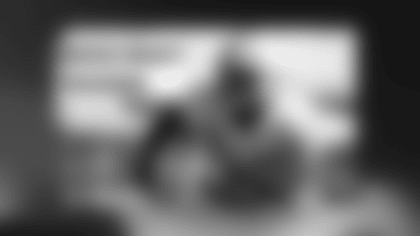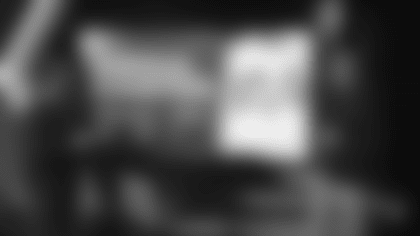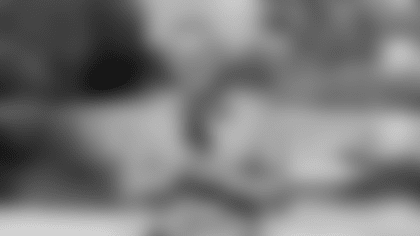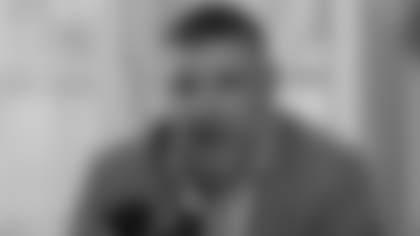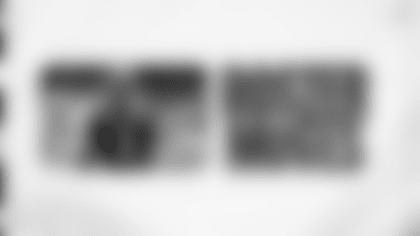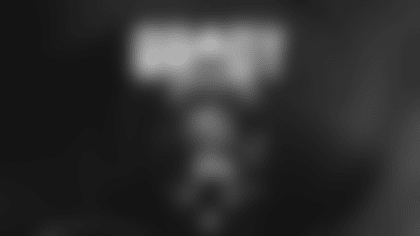INDIANAPOLIS – The Patriots defensive needs are obvious following a season where that unit failed to re-create the magic it found in 2001 when it was one of the top groups in the league in terms of limiting points. And while Bill Belichick has spoken of the need to add young talent to that side of the ball, the Patriots offense could certainly use a boost as well given its inconsistencies in 2002.
The free agency period, which is set to open Feb. 28, will go along way toward determining which direction the Patriots go on draft weekend. But Belichick and Scott Pioli have their work cut out for them.
The pressure is on to add a bigger, productive wide receiver following a season in which free agent pick up Donald Hayes failed to make an impact. But they could go in any direction in acquiring plays and still address a need. To be blunt, they have definite holes to fill.
The Hayes signing obviously shows that the Patriots decision makers believe that a bigger receiver is a need and Tennessee's Kelley Washington could fit that bill on draft day. He has some health issues after suffering a neck injury that he said on Friday has checked out O.K. here at the Combine. Still, the injury could force him to slide and perhaps the Patriots would take a risk with a first day selection beyond the first round if Washington is available.
Drafting a player like Washington, however, has more than just a health risk if New England is looking for immediate results. Cleveland Head Coach Butch Davis admitted Friday in Indianapolis that wide receiver is one of the positions with an especially difficult transition. Basically what Randy Moss and Terry Glenn accomplished as rookies is more the exception with Eric Moulds progression more typical. Moulds didn't emerge as a star receiver until his third season after being Buffalo's first round pick in 1996. He caught 49 passes for 573 yards and two touchdowns in his first two years before exploding for 67 catches for 1,368 yards and nine touchdowns in 1998.
New England could address the position in free agency with the likes of Oronde Gadsden, Brian Finneran or even Marcus Robinson if the Bears release him, but adding a young player as well would not only increase competition, but also help plan for the future. For anyone hoping to land Cardinals star wideout David Boston, forget it.
Cardinals Vice President of Football Operations Rod Graves claimed his team still had an interest in signing Boston, but he certainly didn't save his best sales pitch for the occasion. "David Boston is one of the top players in the NFL," Graves began in explaining why the Cardinals, who have loads of salary cap space, didn't tag the receiver as their "franchise" player. "There are concerns dealing with him both on and off the field. We did not feel comfortable getting into a guaranteed contract situation with him. We're still trying to pursue a deal, but not under a guaranteed situation."
That wasn't exactly a ringing endorsement of the player, and the Patriots won't likely be a factor in the "race" to sign Boston.
Belichick has spoken about the age of his defense – an issue that must be addressed – but Troy Brown, the Patriots best receiver, just finished his 10th season and isn't getting any younger. David Patten is solid and clutch behind him, but isn't a consistent big-play threat. Deion Branch is still unproven while showing the potential to grow into a Brown-type role only with more downfield speed – potential being the operative word. All three lack size, standing at 5-10 or shorter, which forces a coach to worry about durability. However they do it, the Patriots need bigger skilled receiver.
The offensive line did not have a strong season in 2002, and depth was a problem despite the fact that the Patriots have drafted six offensive linemen in the last four drafts – half of those coming in the first two rounds. In all fairness, two of three – Damien Woody and Matt Light – are productive starters. It as an area Belichick has tried to address by adding depth in free agency, but to no avail since Joe Panos and Rich Tylski both retired before playing a down in New England. But if a top offensive lineman like Utah tackle Jordon Gross, fell to one of New England's first round picks, the club would have to consider that player.
Running back may be another issue. It's difficult to accurately judge Antowain Smith's performance in 2002. He admittedly didn't run as effectively as he did during the 2001 Super Bowl season, but the offensive line didn't play as well and the offense was more pass-oriented from the season's outset. All of those factors affected his statistical production.
Could Penn State's Larry Johnson be a possible candidate at 14 or 19? He compared himself to Eddie George this week, which may be a stretch for a guy with limited starting experience on the college level. If the Patriots had visions of replacing Smith, the draft would be the more affordable option. Smith is set to make around $1.4 million in 2003 with a cap figure higher than $2 million. A more talented free agent would be costly, but Smith could use a player behind him nipping at his heals, which is why New England looked into signing Jamaal Anderson last season. Increased competition might help Smith pass the training camp conditioning test at which he is 0-for-2 thus far in his Patriots career.
Johnson lives with the stigma placed on Penn State running backs and his production against tougher opponents was less than spectacular, which means he could slide down the board come draft weekend. If he were there at No. 50 – the Patriots second round pick – he would be worth taking. But it would probably take a near miracle to get him in that spot, and New England has too many other needs to use one of their first rounders on him when Smith is productive enough, having posted 2,140 yards in his two years as a Patriot.
It's easy to assume the Patriots will draft defense with their pair of first round choices, but a lot of time remains between now and the draft. What happened in late April will depend on what happens in the seven weeks of free agency that precede it. It's not inconceivable, incidentally, for the Patriots to package the two picks and move into the top 10 or even the top five.
Wideout Charlie Rogers is likely to go to Detroit at No. 2 or Houston at No. 3 since neither of those clubs is in the market for a quarterback. Could the Patriots pry one of those picks away and land the best receiver in the draft? Or maybe the best pass rusher in Arizona State's Terrell Suggs?
For his efforts at Michigan State, Rogers, who measured at 6-3, 202, feels like he could be the top choice in the draft, ahead of USC quarterback Carson Palmer.
"I feel I have a good shot to be the No. 1 pick," he said. "I bring size. I can stretch the field. I'm young, hungry and in search of a Super Bowl. But it's a blessing just to get picked in the NFL.
He doesn't lack confidence, but it would be hard to argue with him, especially given the potential for the 21-year-old wideout. "I only played two years of college football so I'm kind of raw," Rogers said. "There's room for me to grow and improve. I'm preparing at the Cris Carter Camp down in Boca Raton, Fla. He brings the ideal package to the game."
Whichever direction Belichick and Pioli decide to go, it is imperative that they hit in this draft to bolster an aging team that lacks enough playmakers only a year removed from a world championship. The free agency period is critical to augment the talent, but the draft is where the Patriots need to build. That is why the staff is working diligently in Indy trying to outsmart and outwork its counterparts.



